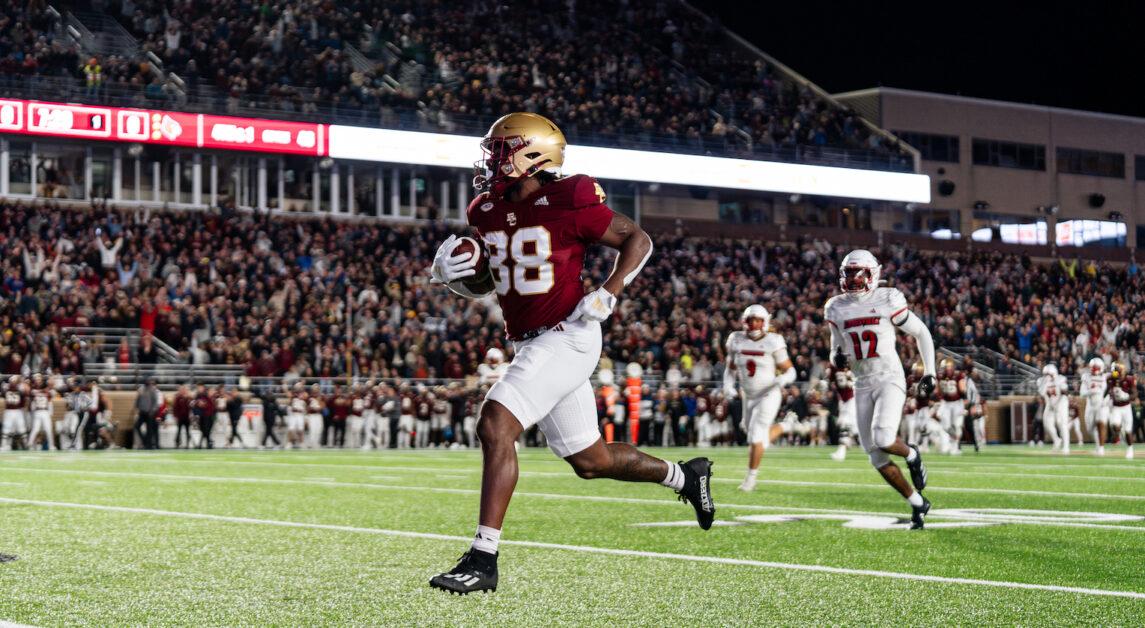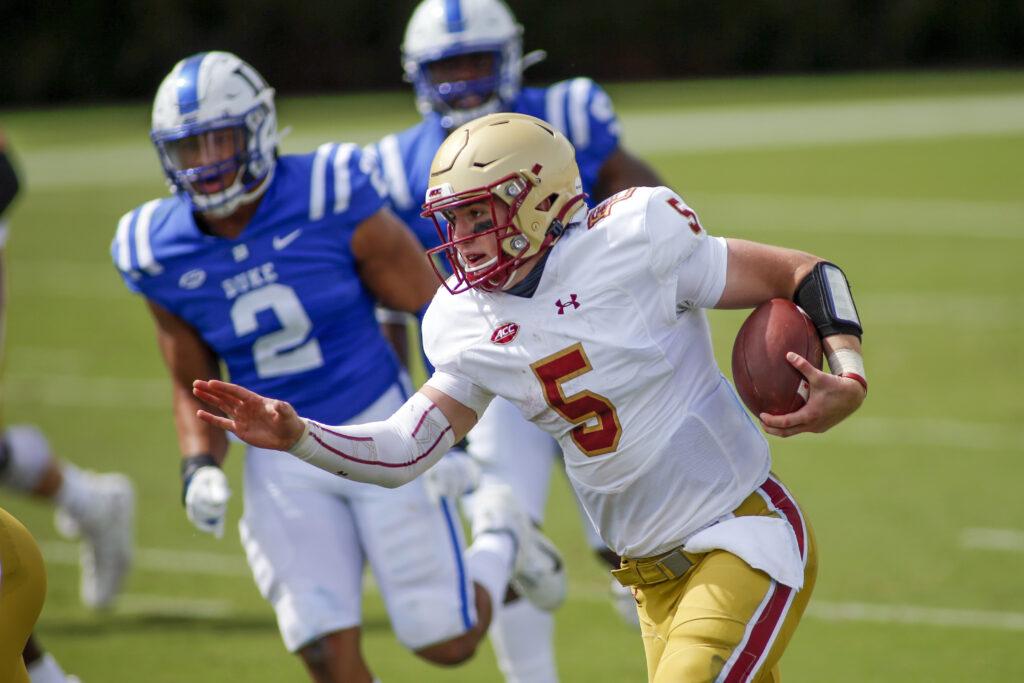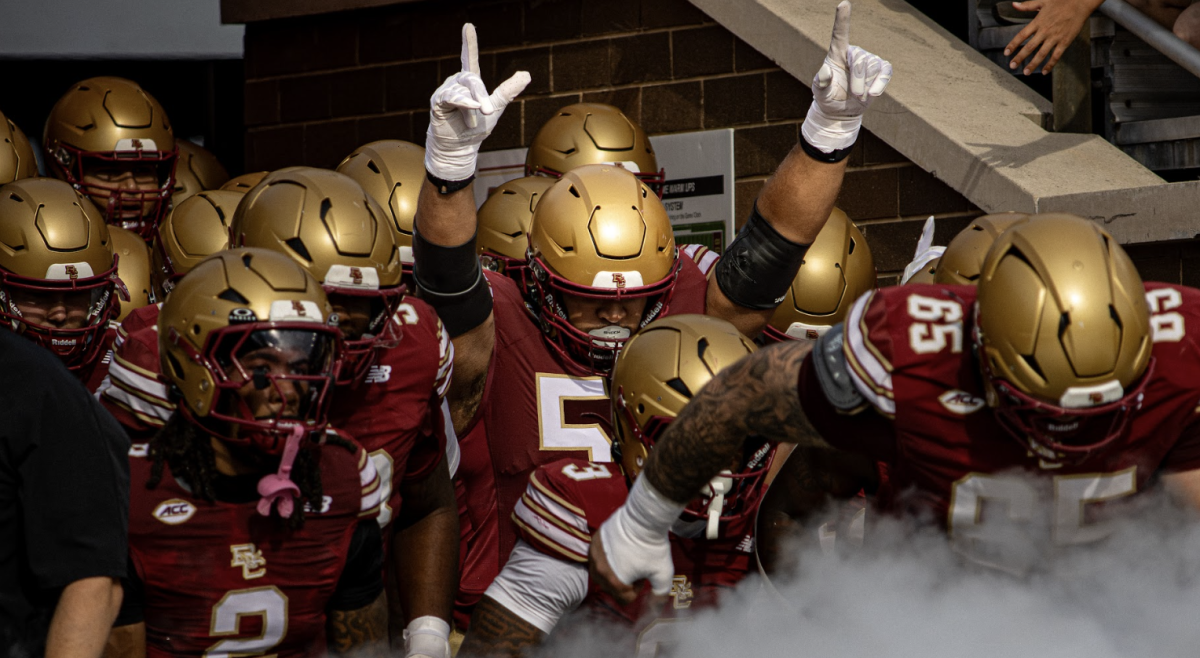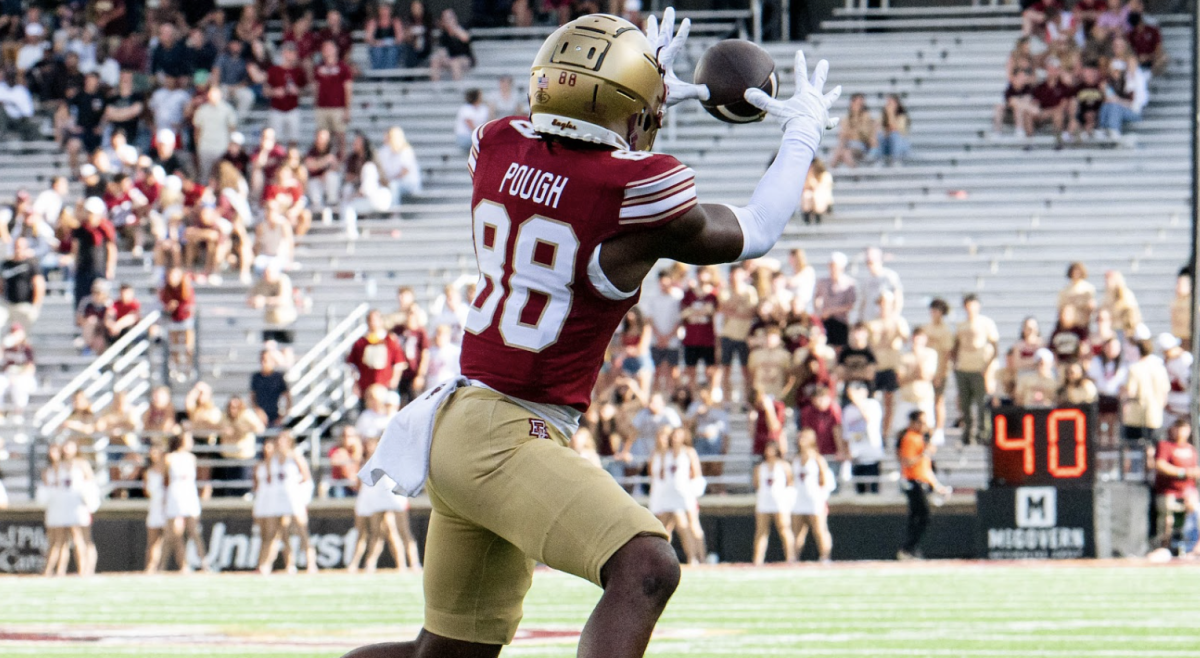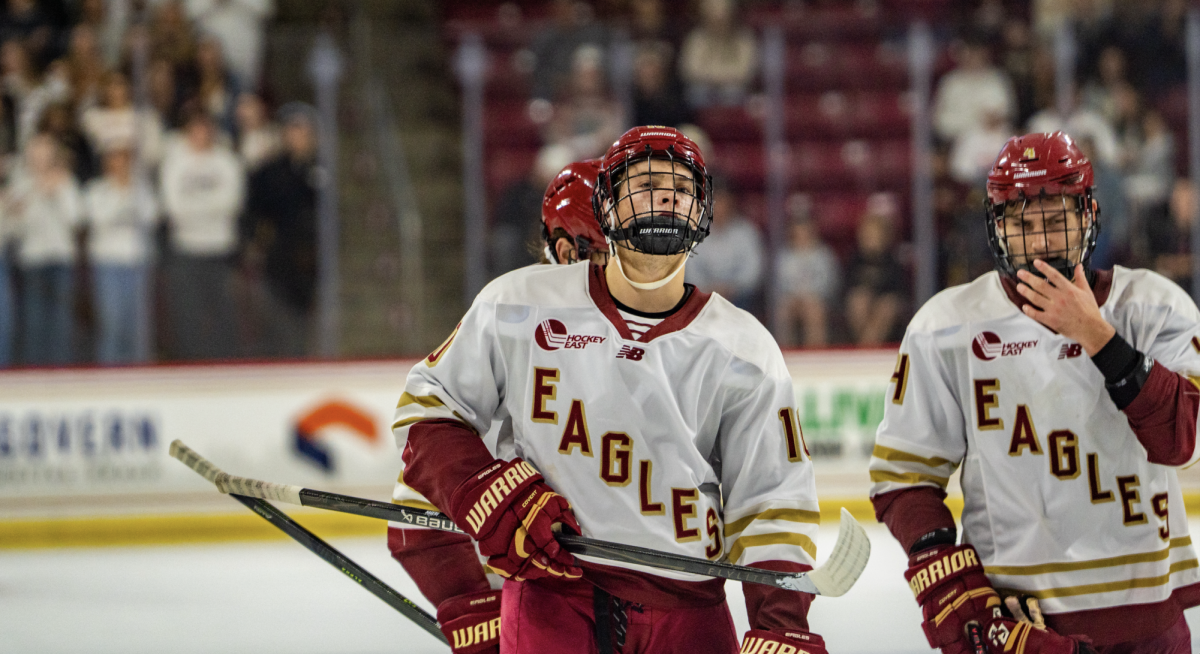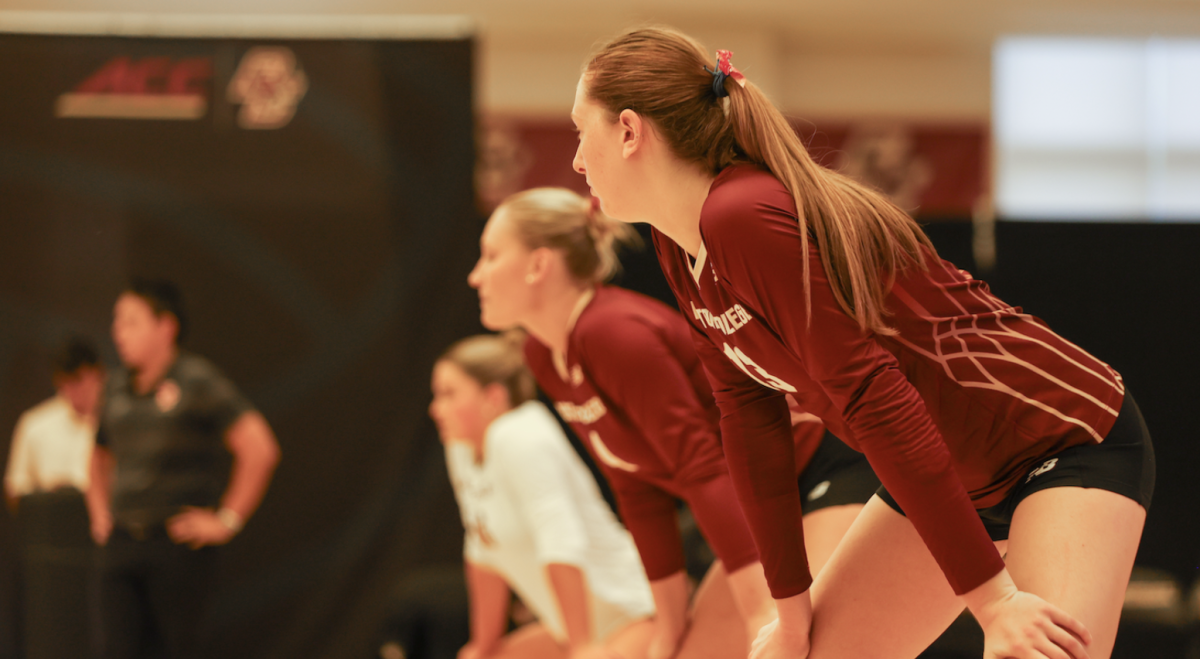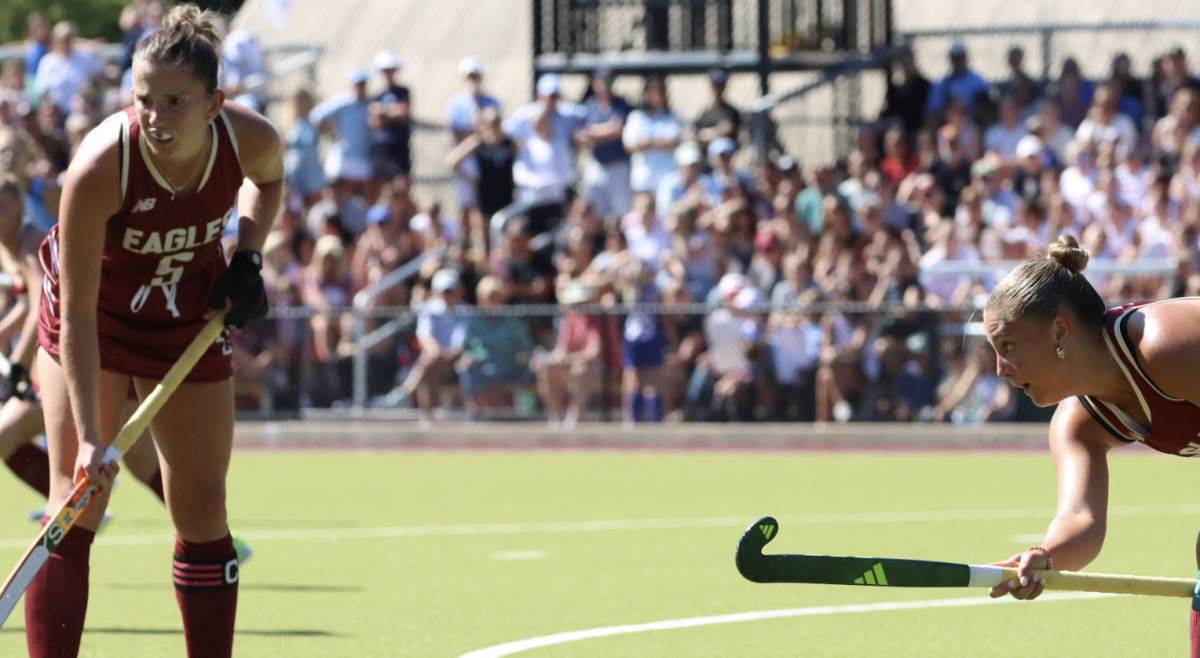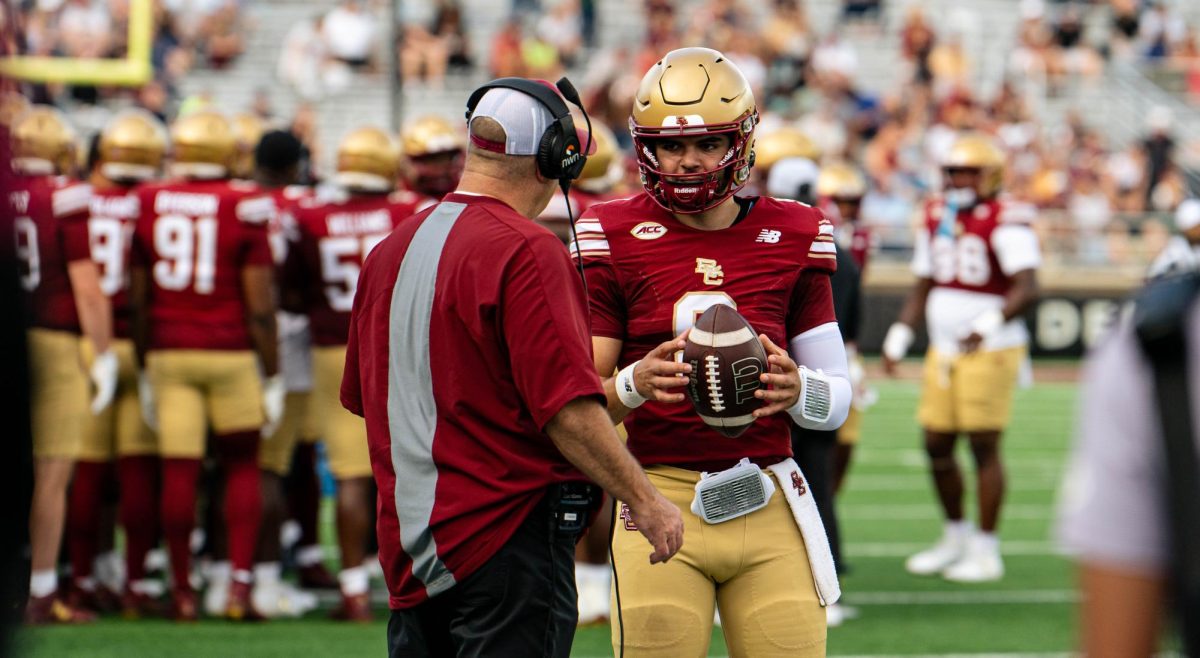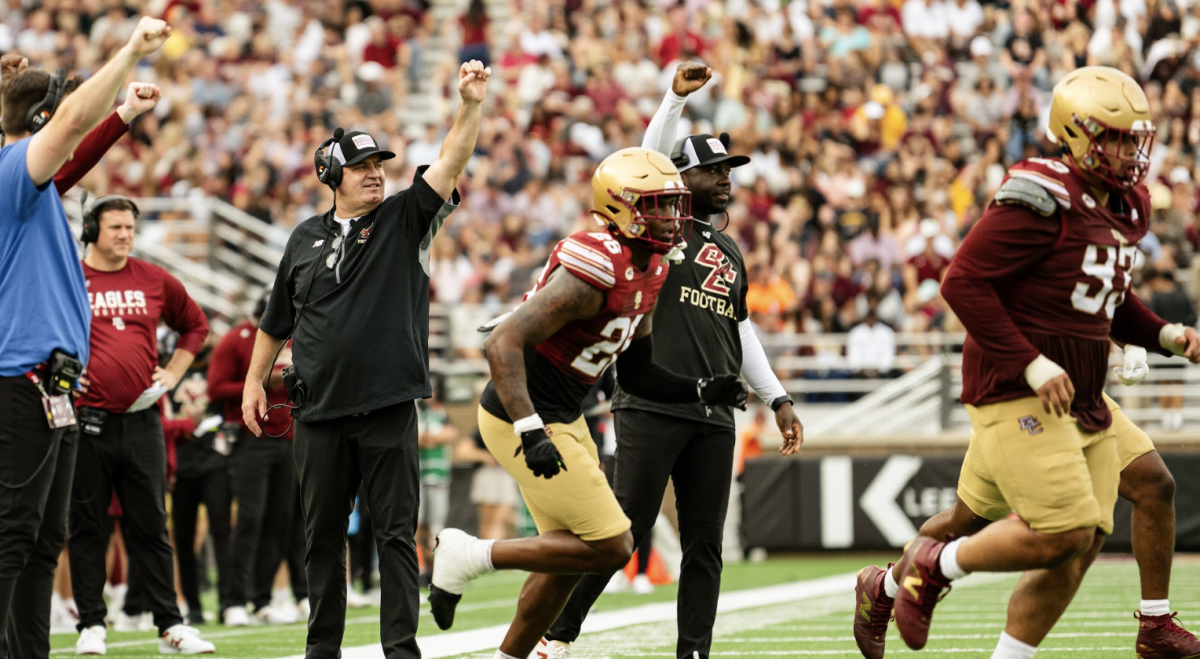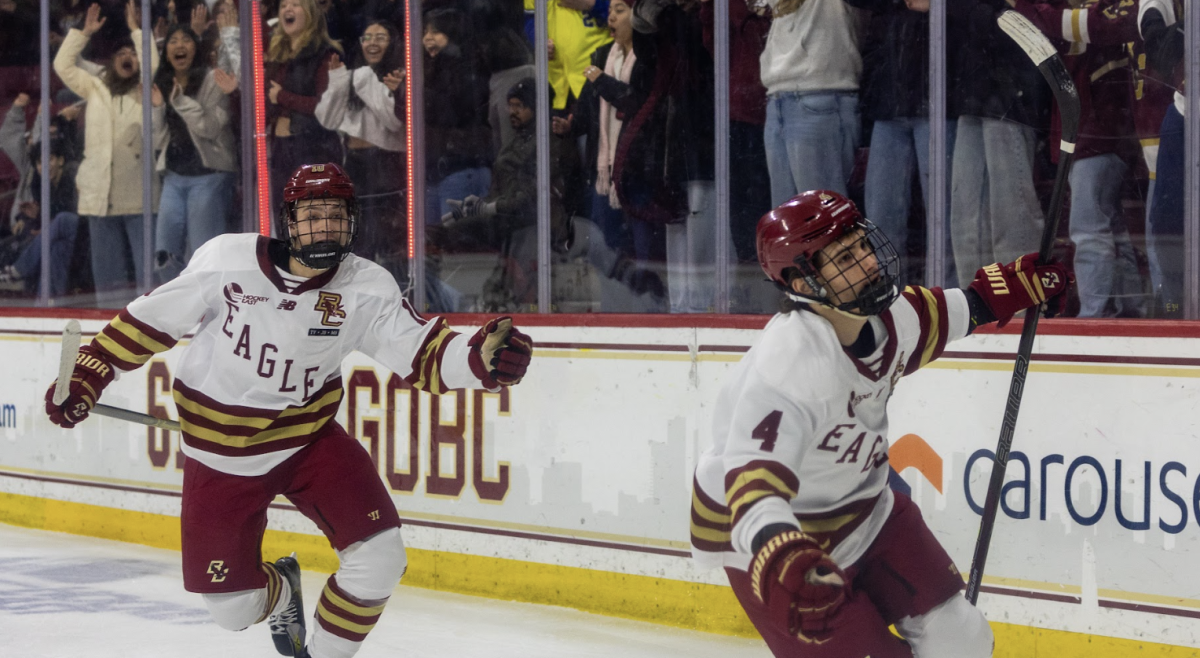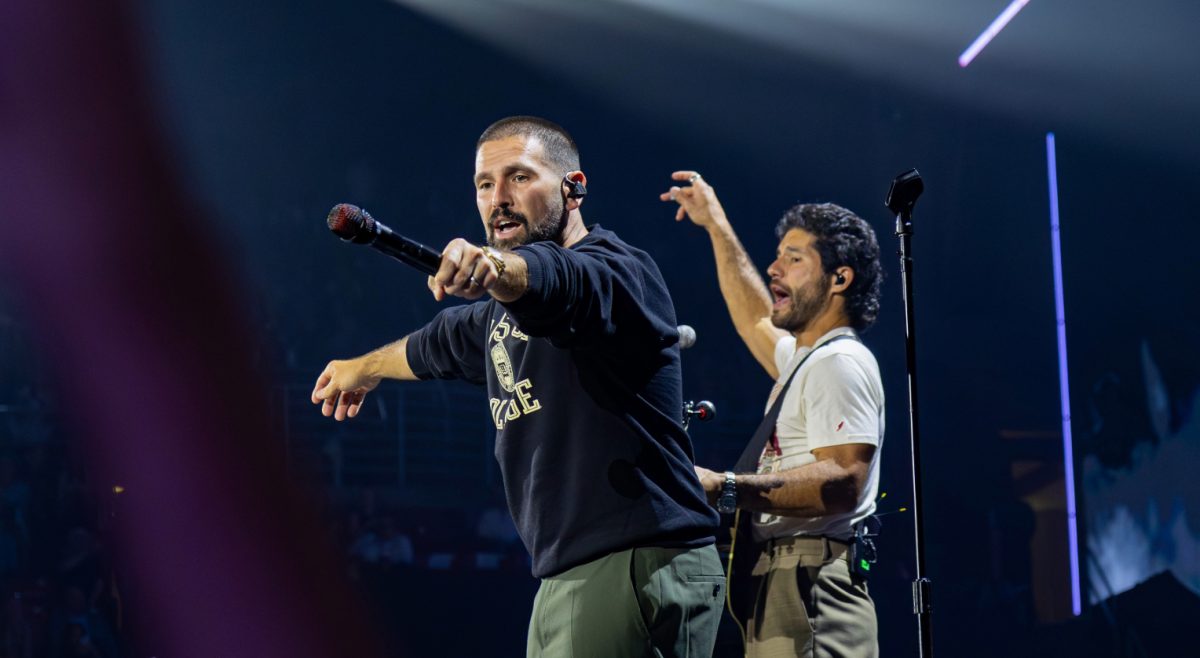From Boston to Berlin: James Redding’s World Record Journey

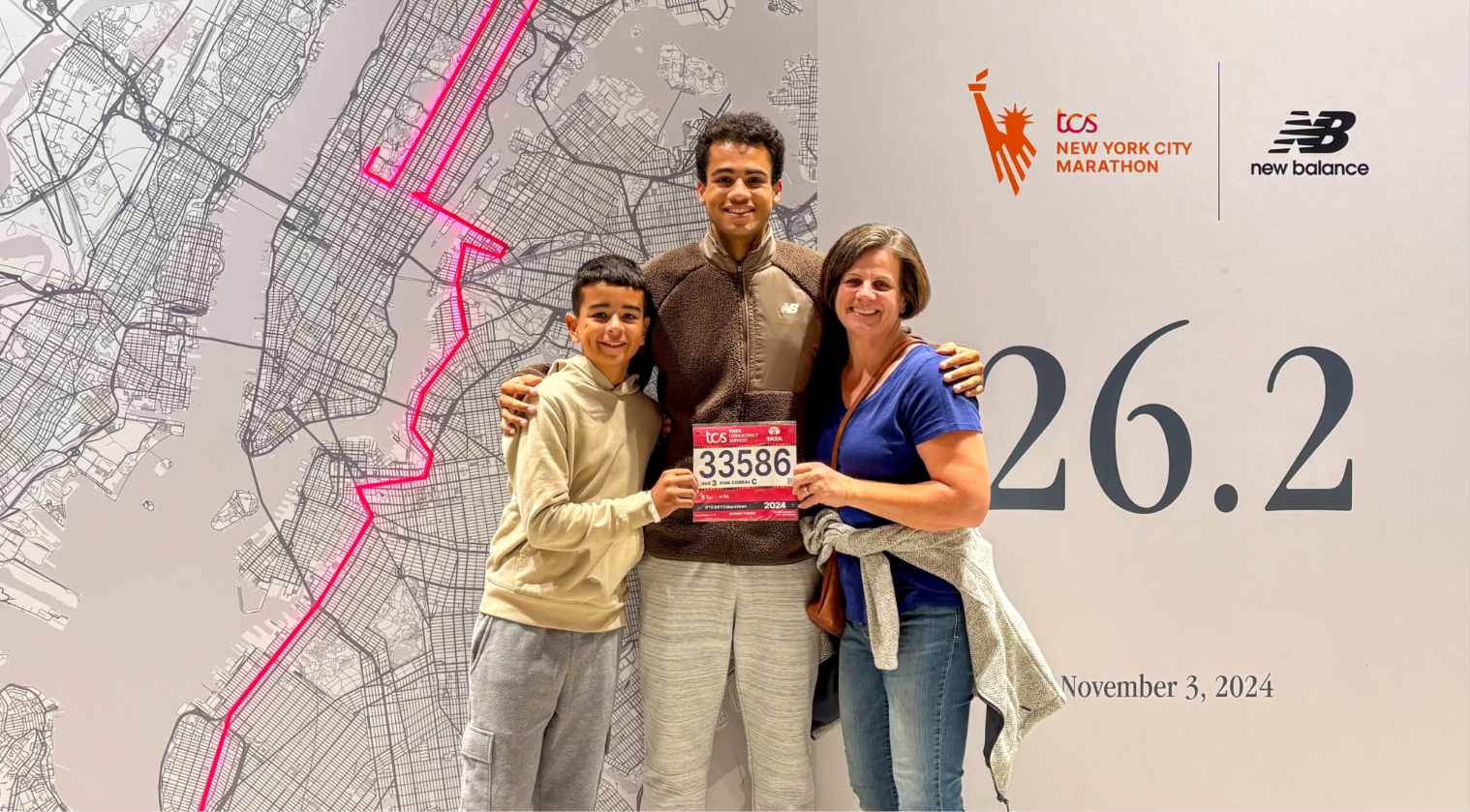
James Redding hasn’t always been a runner.
A hockey player in high school, that was his priority, but he knew that development rested on becoming more athletic.
So Redding decided to start running.
In August 2019, Redding, MCAS ’27, and his mom made a pact: run one 5k a month for one year. Six months later, the COVID-19 pandemic hit, forcing the world inside and cancelling organized races in the process.
Redding and his mom, however, didn’t let that stop them. The pair continued to run, and before long, Redding wanted to make the leap to a 10k. Then a half-marathon. Then a marathon.
Redding had caught the racing bug.
Six years later, Redding would become the youngest man to ever run all six world major marathons by completing the Berlin Marathon on Sept. 21, 2025. And two days after that, the Boston College junior was back on campus, making up missed exams.
While sitting in O’Neill Library his freshman year, Redding got a message from his mom: a link to a charity website.
He and his mom had tackled their first marathons just a year prior. Redding, too young to run the Boston Marathon alongside his mom, ran in Maine. Having just turned 18, Redding was finally eligible to run the Boston Marathon.
Redding’s mom had sent him the page for the Brookline Education Foundation. He grew up in Brookline, attending public school before coming to BC. His mom also taught in the Brookline school system.
Redding immediately wrote an application essay, and in April of 2024, he found himself lining up to race his first major with a Brookline Education Foundation bib. As a Brookline native attending BC, Redding naturally sees the Boston Marathon as his favorite.
“Home experience was something that I don’t think will ever be topped,” Redding said.
Running through the streets where he had watched the Boston Marathon as a kid, Redding’s first major was marked with sentiment. Whether it was friends at Mile 21 or former teachers and teammates in Brookline, the people who came out to see Redding made the experience even more special.
Even as he stood in Berlin with 26.2 miles between him and his world record, Redding was thinking less about the race itself and more about those who had helped him get there.
“It wasn’t a sense of nervousness, as much as it was a sense of gratitude that so many people cared and so many people believed in me,” said Redding.
Following his meaningful first marathon experience, Redding’s next steps were clear. The Boston Marathon introduced Redding to the world’s major marathon circuit. After doing some research, he discovered that the Chicago and New York City marathons were not only easy to travel to, but were also quickly approaching.
Sending off a litany of emails to Chicago charities, Redding got picked up just in time for the race in October 2024. He ran for Huntington’s Disease Society of America and, in the process, found a new appreciation for raising money for organizations that don’t get as much funding but do important work nonetheless.
Once he was through with the Chicago Marathon, Redding committed to finishing all six major marathons before graduation. With the New York Marathon on the horizon, Redding was in need of another sponsor for the last major of 2024. And though the race was mere weeks later, he knew just who to reach out to.
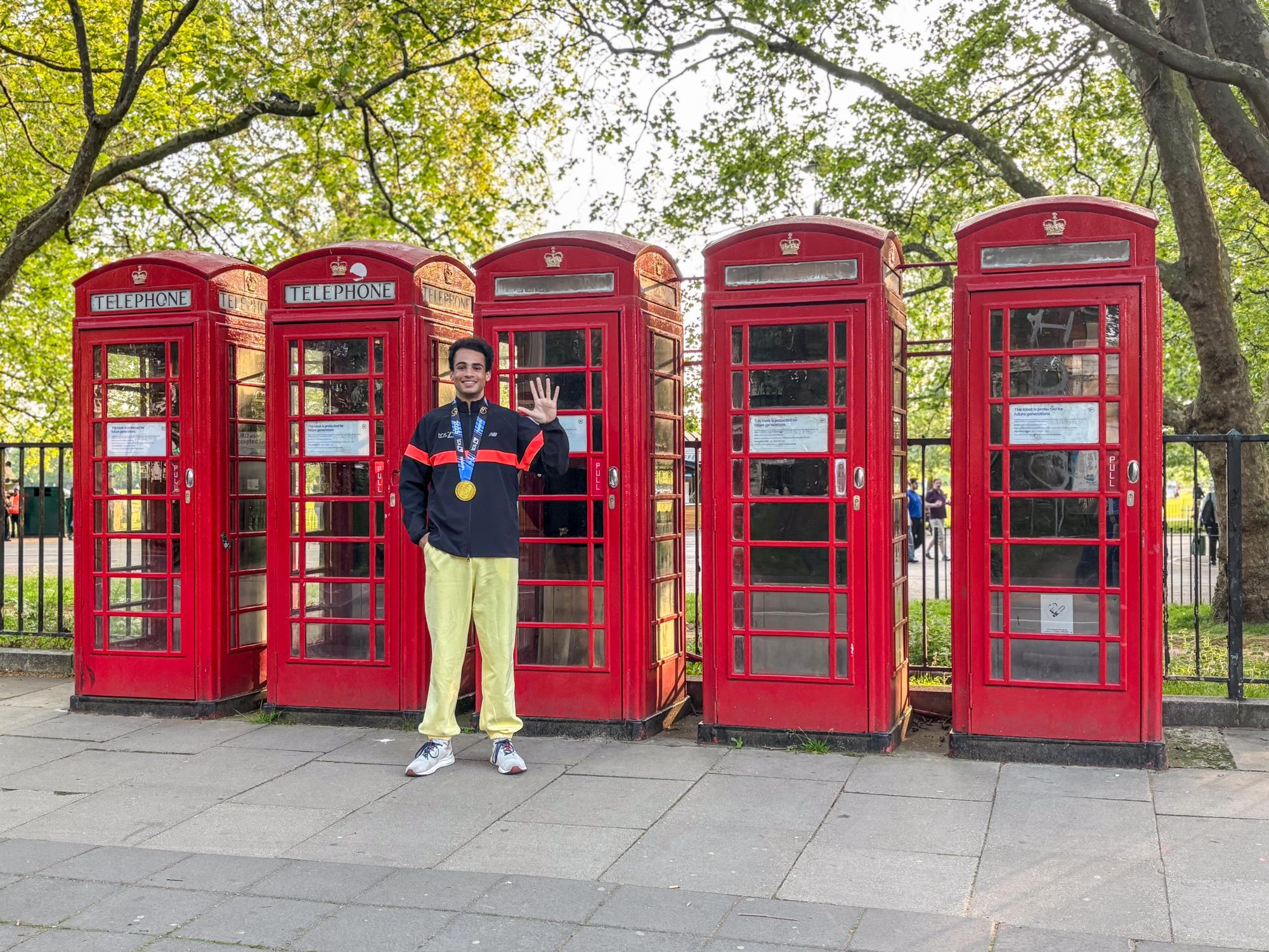
Redding is a hockey coach at Warrior Ice Arena, owned by New Balance. As supporters of the New York Marathon, New Balance gives bibs to any of its employees who write an essay outlining why they should be given the chance to run.
Redding wrote about his goal of being an Abbott Six Star Medalist. He was given his number and, three weeks after crossing the finish line in Chicago, found himself running through the boroughs of New York City. It was then that Redding reached the halfway point and had three marathons to look forward to: Tokyo, London, and Berlin.
But first, Redding had to get into those races. While he had been able to run for charities and on behalf of New Balance for his first three majors, the other three would pose more of a challenge to enter.
Tokyo and London are notoriously difficult to get into, with Tokyo having limited non-elite spots and London having a particularly high demand.
Regardless, Redding was able to find some strokes of luck.
After New York, Redding entered the lottery for the Tokyo Marathon. Although many wait a decade or more to get in, Redding managed to do so on his very first try.
Redding’s second dose of luck came when he was given a spot at Berlin in the second-chance lottery after being rejected on the first go-around.
Now set to run in March and September, Redding had just one more bib to secure. That last bib, though, would round out an accomplishment bigger than Redding had imagined back at the Chicago finish line.
After being asked by his friend, Redding became curious about who the youngest person was to ever become an Abbott Six Star Medalist. He sent a message to Abbott World Marathon Majors on Instagram and got a response: The youngest man was 20 years and seven months old. If Redding got his bib to Berlin, he would be 20 and four months old when he won the medal.
So, Redding turned back to his connections at New Balance for one last favor. Explaining his revised mission of becoming the youngest man to get an Abbott Six Star medal, Redding was awarded his final bib. He was on his way to the world record.
These opportunities didn’t come from nothing, and Redding has a deep appreciation for the chances he was given in his journey to the Six Star Medal.
Redding explained that seeing those with Huntington’s disease or prosthetic legs passing him in marathons gave him perspective.
“I had to take advantage of the opportunities, because each of those races is a race that someone dreams of running—that someone works a good chunk of their life to be able to run,” Redding said.
Redding had laid out the path to meet his goal well before graduation. All he needed to do was run three more marathons.
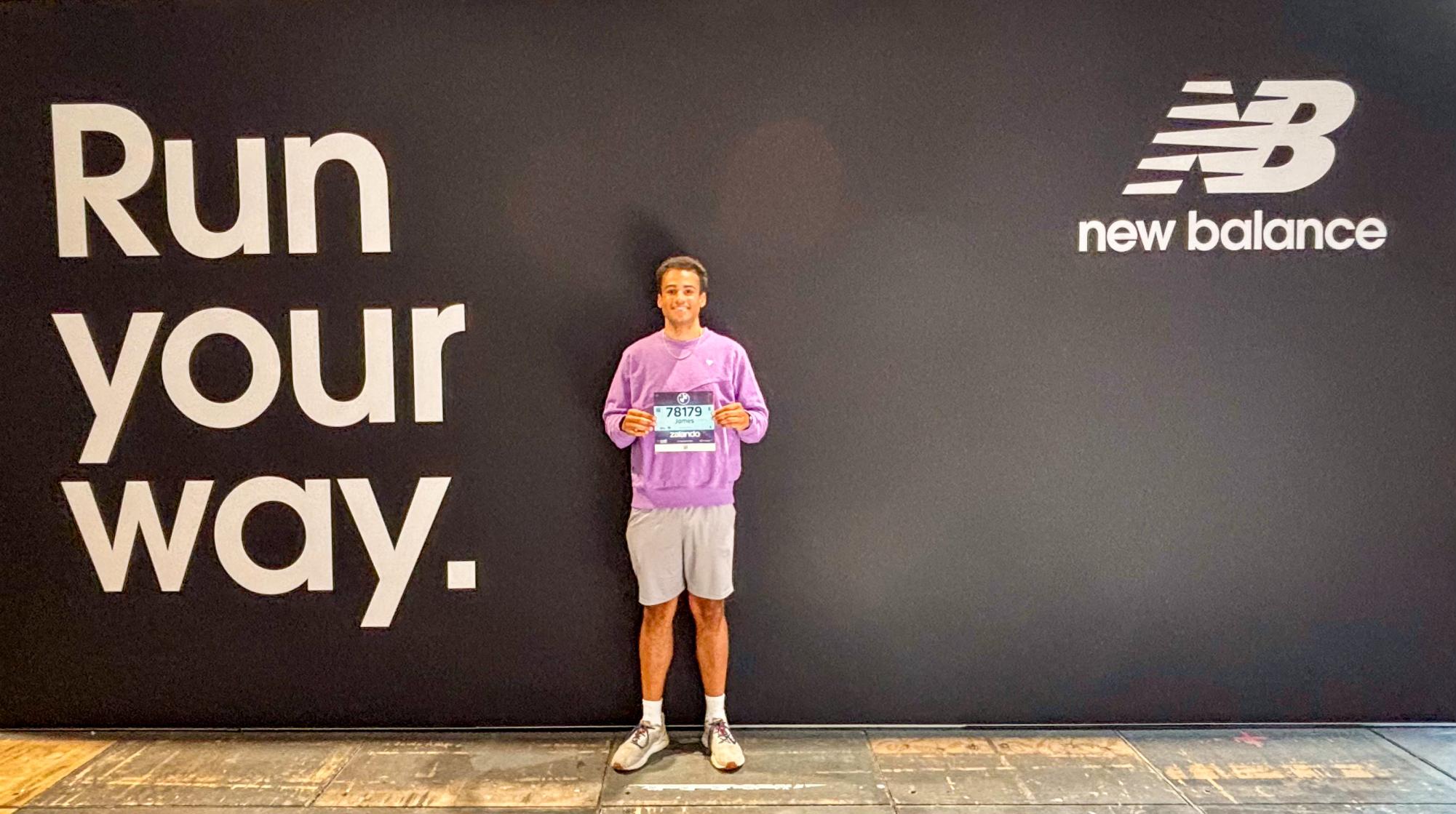
Without his own grit and discipline, Redding would never have been able to achieve what he has.
On the running end, he went from out of shape to a marathoner, all before reaching college. But what is perhaps even more impressive is that Redding has been able to balance marathon training with his responsibilities as a full-time student and a part-time hockey coach at both Brookline High School and Warrior Ice Arena.
For Redding, running is all about self-accountability. Planning out his school work with training a month in advance, Redding knows that one part of reaching lofty goals is staying on top of things.
The other part lies in finding a strong and ceaseless motivation.
“It’s all about how much you want it and what your true ‘why’ is,” Redding said. “Because each time I run and it gets hard, I think about, ‘well, why am I doing this?’ Am I going to stop right now, or am I going to keep pushing through because of the ‘why?’”
Redding has travelled around the world to earn his Six Star Medal, and in each marathon, he’s met people with incredible stories of how they got to the start line.
When people with different motivations are brought to the same place, running becomes just as much a group activity as it is a personal one.
“Being in that community of people from all over the country, all over the world, all brought to the exact same place just because of their ‘why,’ was something that was incredibly inspiring for me,” Redding said.
When it came time to run Berlin in September, Redding knew that his “why” would bring him across the finish line. It had carried him through Tokyo and London without fail, and now it was time to finish off the goal he had set just a few months before.
Even in moments of doubt—moments where easy runs felt too hard and bibs seemed out of reach—Redding kept going because of that “why.”
That kid that couldn’t keep up, who was out of shape, who was never the star in hockey or in gym class, who never wanted to put himself on display—that’s who Redding keeps running for.
And he wasn’t just doing it for himself. Redding also felt an obligation to finish for those who had supported him since the beginning.
Even when the Berlin Marathon was the hottest Berlin ever recorded, Redding thought back on just how fortunate he was to be in that situation.
And just 17 months after his first major marathon, Redding became the youngest person ever to be a Six Star Medalist.
The accomplishment came from his own determination, but Redding still has his support system—the other part of his “why”—to thank for getting him to where he is now.
“Yes, I did the running, but without my professors at BC helping me reschedule things, without New Balance helping me out with getting some numbers, without my mom helping me plan these trips—just, without my family and friends’ support, there would be no way that I would have been able to get done,” Redding said.
Now back at BC for the rest of the semester, Redding has gotten into the swing of classes again—this time with a Guinness World Record to his name.
In terms of next steps, Redding has already entered the lottery for the Sydney Marathon, which is soon to be added as a seventh world major. Though it would put another major under his belt, it would make him miss the first week of senior year—a dilemma only a 21-year-old Six Star Medalist would face.
Looking back at the journey he’s gone through, Redding can say with certainty that he’s undergone incredible growth as both a runner and a person. He hopes to inspire those looking to get into running with his own story. Despite it feeling like a chore at first, Redding said just getting out there will yield incredible outcomes.
“It really does start with a mile,” said Redding.
By putting one foot in front of the other, Redding has had experiences of a lifetime, with the added bonus of doing it with those he cares about most.
From spending his spring break exploring Japan with his family for the Tokyo Marathon to running Berlin with his training partner and fellow hopeful Abbott Six Star medalist Holden Williamson, MCAS ’27, Redding credits his friends and family for making all six stars so memorable.
Through the pain and the workload, the stress of getting bibs and keeping healthy, Redding never allowed himself to stop. With his goal and his “why” to get him there, Redding has shown what it truly means to be a marathoner.
“Now, being on the other side, I would just tell that kid to keep going, and then you’ll see what happens,” Redding said. “You control what you can control, and then everything else will fall how the world wants it to fall.”


